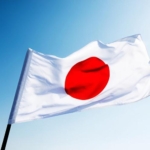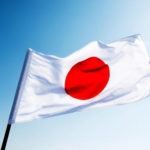
On August 6 and August 9, 1945, the world witnessed the most terrifying use of technology ever imagined. The American bombings of Hiroshima and Nagasaki claimed over 200,000 lives and seared the concept of total war into the global conscience. These weren’t just attacks; they were loud, radioactive announcements that the world had entered a new, more dangerous age.
Eighty years on, it is not just the mushroom clouds that linger in memory, but also the remarkable journey of Japan from ruin to respect. While many nations still nurse generational grievances from colonisation, slavery and global neglect, Japan offers an instructive example of post-catastrophe resilience. No endless blame games. No generational sulking. Just work. Hard work.
The Bomb That Changed the World
The atomic bomb was not a casual tool of war. It was the climax of years of unprecedented scientific and military effort, codified in the Manhattan Project. As the US fought a two-front war, it still found time, money, manpower and sheer intellectual horsepower to create a weapon that could obliterate cities. Over $2 billion (about $25 billion today) was poured into the effort at a time when global resources were stretched to the bone.
President Truman, who inherited the project after Roosevelt’s death, authorised its use not out of bloodlust but calculation. After brutal Pacific campaigns like Iwo Jima and Okinawa, the US faced the terrifying prospect of a mainland invasion of Japan, one expected to cost over a million Allied lives and potentially five million Japanese. For Truman, the bomb was the lesser evil.
But Hiroshima and Nagasaki were not just military targets; they were psychological ones. The aim was to shatter the will of a nation that refused to surrender. And it did. On August 15, Emperor Hirohito addressed the nation for the first time ever, not to rally for war but to surrender. The world, bloodied and breathless, could finally begin to heal.
No Blame, Just Rebuild
And what of Japan? Did they rage endlessly against America? Did they collapse into national despair and nurse their wounds through decades of political victimhood?
No. Japan rebuilt. Fiercely.
Within a few decades, it emerged not just from the rubble but as a global economic powerhouse. Bullet trains replaced bomb craters. Sony, Toyota, Panasonic and Honda replaced the imperial army. Sushi became global. Anime, a uniquely Japanese style of animated storytelling that blends visual artistry, cultural philosophy and emotional depth, became a worldwide phenomenon. More than just entertainment, Anime has grown into a multibillion-dollar industry, with the global market valued at over $30 billion as of 2023 and projected to exceed $50 billion by 2030. It represents how a country can export not just products, but identity, values and imagination.
A country like Ghana could take inspiration from this. Through its rich oral traditions, proverbs, history and mythology, Ghana can craft its own powerful storytelling formats using animation, film, digital media or literature to export its own cultural movement to the world. Just as Anime made Japan culturally irresistible, Ghana too can become a beacon of modern African creativity, proudly telling its stories on its own terms.
Most remarkably, Japan never blamed its postwar struggles on the bombings. They didn’t chant “America ruined us.” They didn’t hold global protests demanding reparations or apologies every year. Instead, Japan turned its tragedy into testimony. Every August 6, Hiroshima doesn’t just mourn, it teaches. The Peace Memorial Park stands not as a monument of anger but as a warning and a call to peace.
Contrast and Contemplation
This stoic resilience offers a sharp contrast to some nations and communities that remain economically and psychologically stuck, still blaming the transatlantic slave trade, colonialism or 19th-century injustices for their lack of 21st-century development.
Let’s be clear: history matters. Slavery was evil. Colonialism was exploitative. Oppression has consequences. But there comes a time when generational blame becomes generational stagnation. And at that point, self-pity becomes a greater enemy than past injustice.
Japan shows us what’s possible when a people, even after being nuked, choose rebuilding over resentment.
The True Nuclear Legacy
Today, the world lives in the long shadow of Hiroshima. The Cold War, the nuclear arms race, the treaties, the deterrence doctrines — all trace their roots back to that morning sky over Hiroshima. But so too does another legacy: the Japanese miracle.
As we mark 80 years since that fateful week, may we not just remember the dead but also honour the living legacy of resilience that Japan offers.
It is a lesson that must echo in Accra and Kinshasa, in Kingston and Port-au-Prince. History can hurt, but it must not paralyse.
There is life after the bomb. The question is, what do you choose to build?
- President Commissions 36.5 Million Dollars Hospital In The Tain District
- You Will Not Go Free For Killing An Hard Working MP – Akufo-Addo To MP’s Killer
- I Will Lead You To Victory – Ato Forson Assures NDC Supporters
Visit Our Social Media for More




